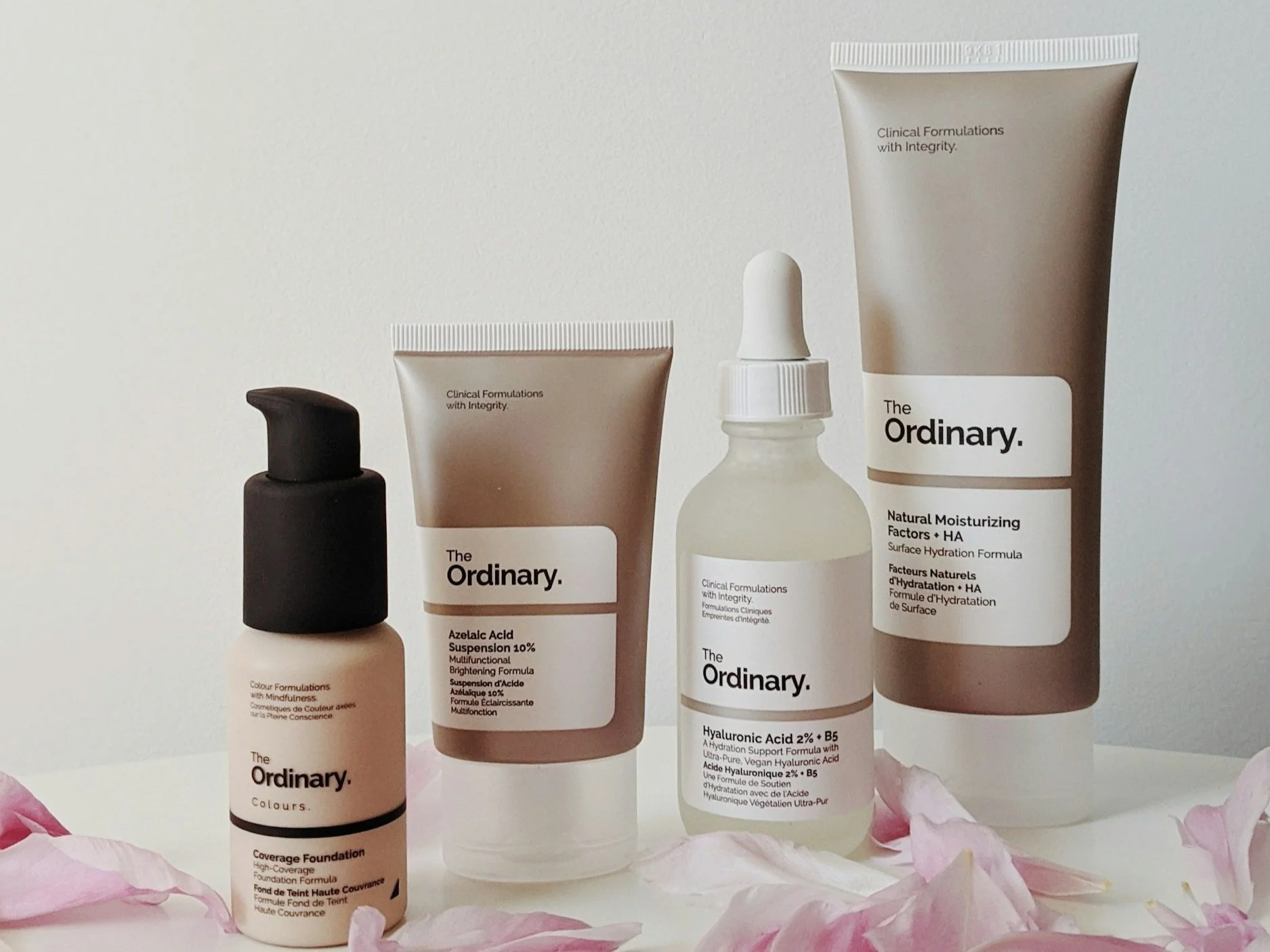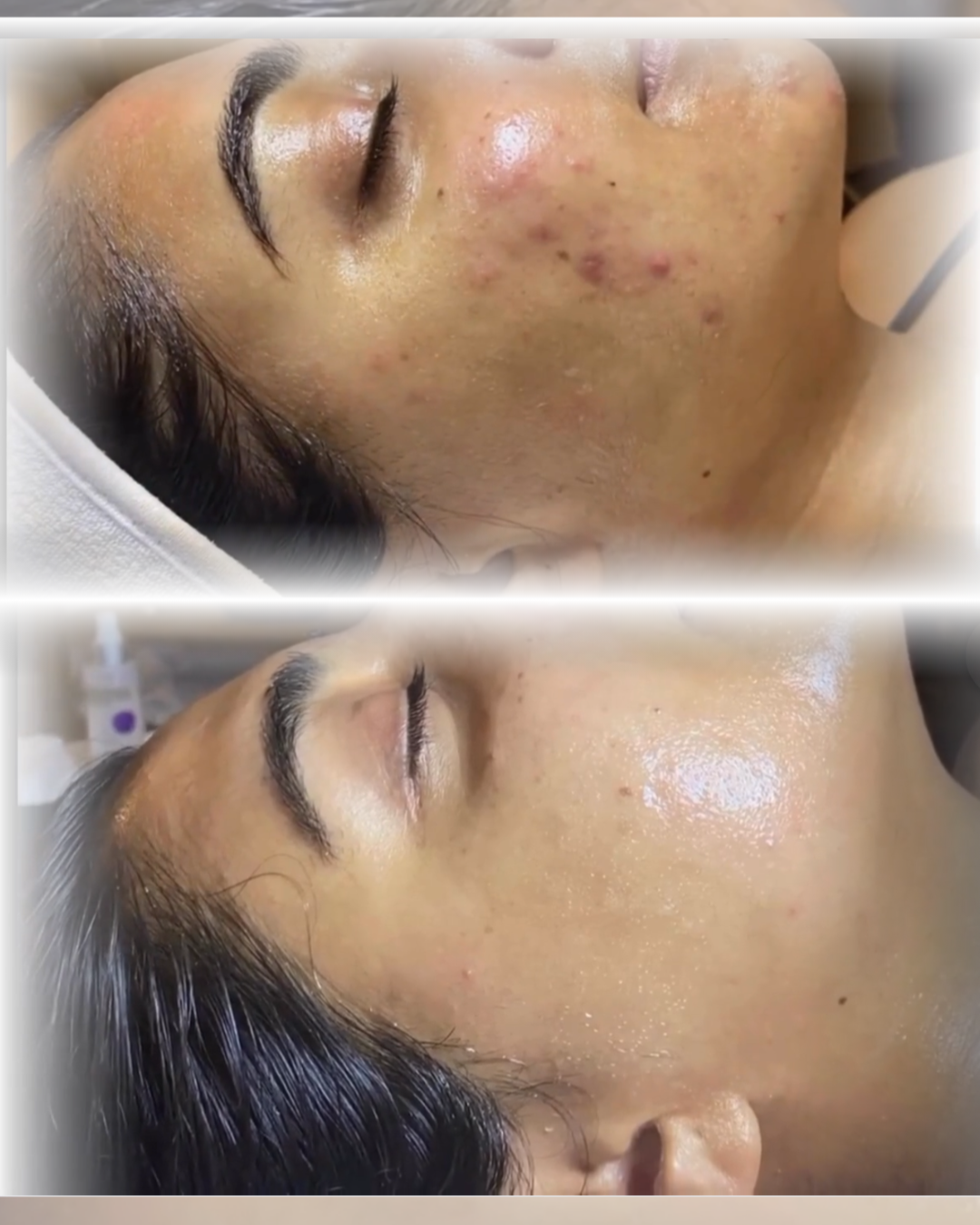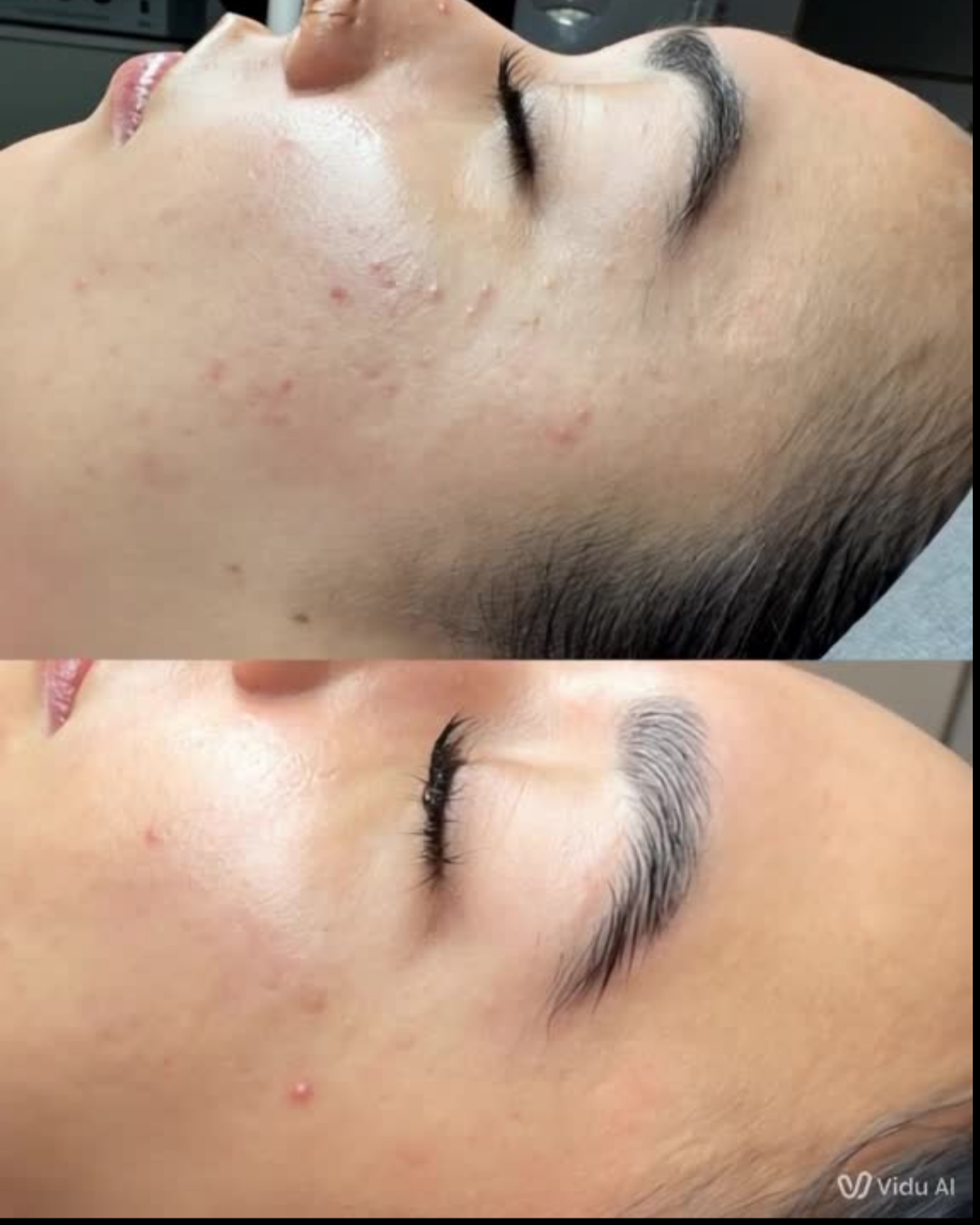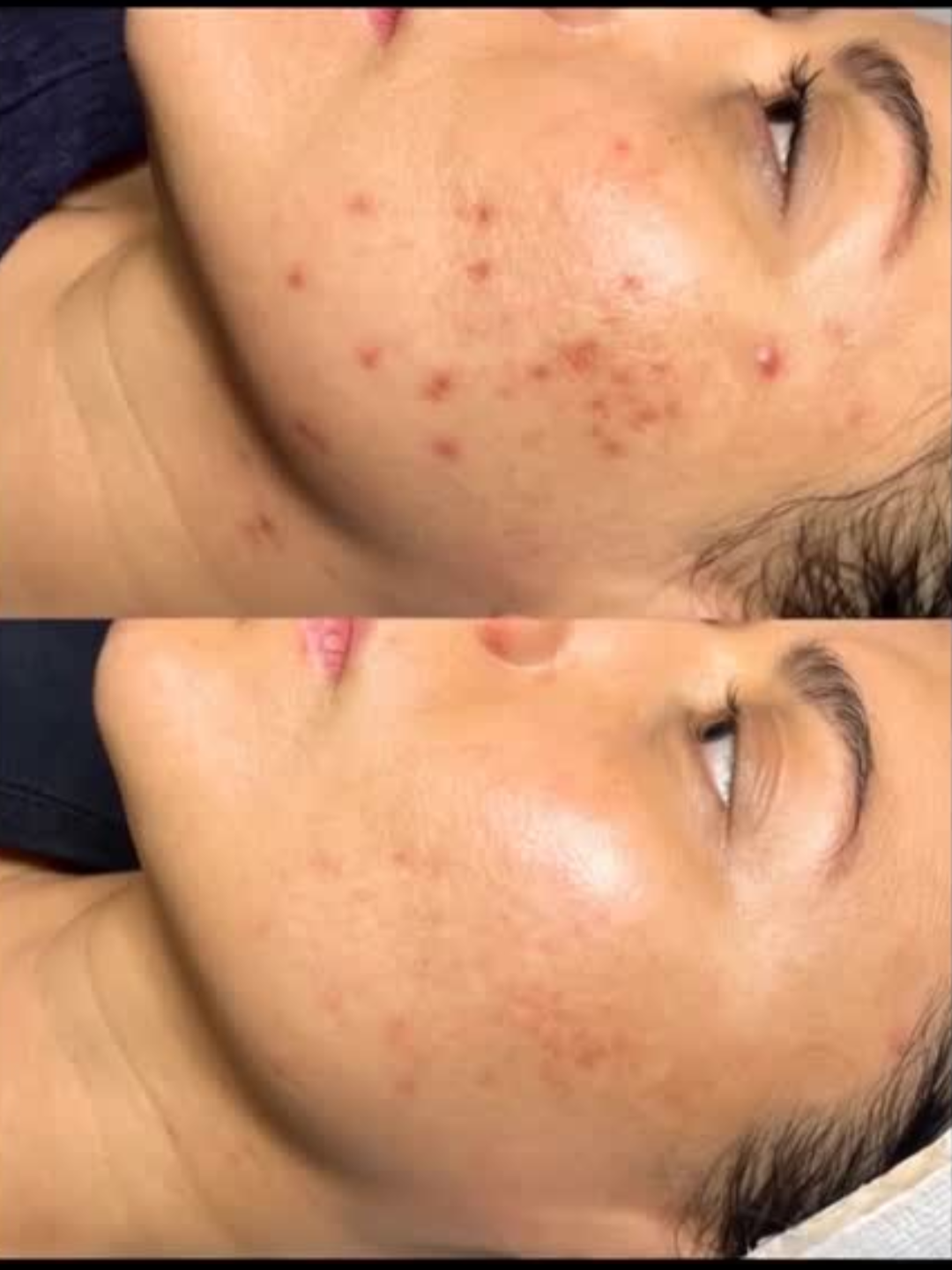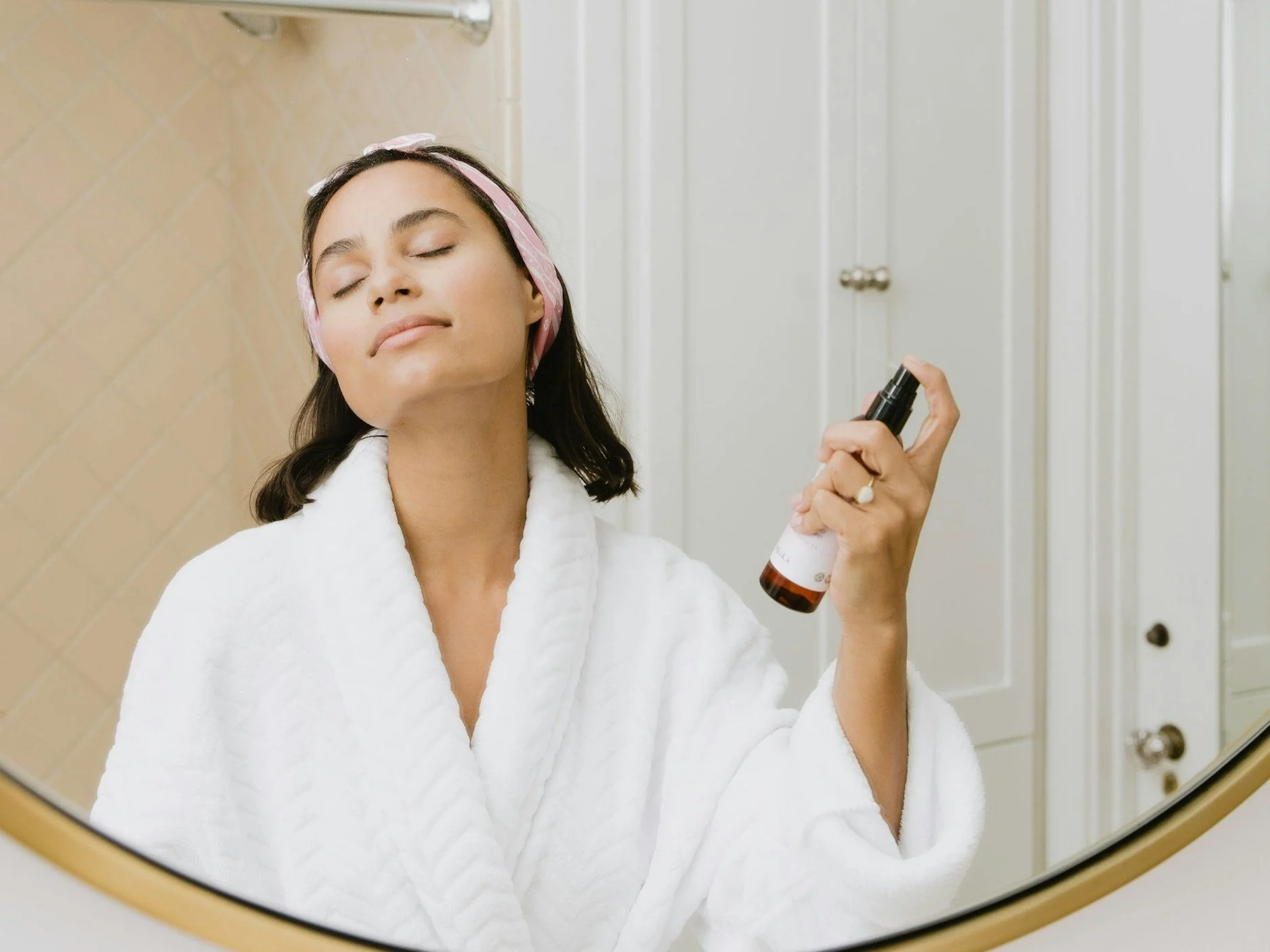Acne: Types, causes, and treatment
Acne affects up to 85% of people at some point in their lives, making it one of the most common skin conditions. Understanding the different types and treatment options can help you develop an effective skincare strategy.
Rosacea: one of the 4 types of acne
The 4 Types of Acne
1. Comedonal Acne (Non-inflammatory)
Blackheads - Open comedones with dark appearance due to oxidized oil
Whiteheads - Closed comedones that appear as small, flesh-colored bumps
Most common type, typically appears on forehead, nose, and chin
2. Inflammatory Acne
Papules - Small, red, tender bumps without visible pus
Pustules - Red bumps with white or yellow pus-filled centers
Results from bacteria and inflammation in clogged pores
3. Cystic Acne
Nodules - Large, painful lumps deep under the skin
Cysts - Deep, pus-filled lesions that can cause scarring
Most severe form, often requires professional treatment
4. Rosacea
Persistent redness, particularly on cheeks, nose, chin, and forehead
May include papules, pustules, and visible blood vessels
Often triggered by heat, spicy foods, alcohol, or stress
Different from traditional acne and requires specific treatment approaches
At-Home Treatments
Daily skincare routine:
Gentle cleanser twice daily (avoid over-washing)
Non-comedogenic moisturizer
Broad-spectrum SPF 30+ sunscreen
At home skincare treatments for acne
Over-the-counter ingredients:
Salicylic acid (BHA) - Unclogs pores and reduces inflammation
Benzoyl peroxide - Kills acne bacteria and prevents new breakouts
Retinol - Promotes cell turnover and prevents clogged pores
Niacinamide - Reduces inflammation and controls oil production
Sulphur- This is one of my favourites! and not widely known about. Its a good all-rounder but is phenomenal at treating rosacea.
Important tips:
Start with lower concentrations to avoid irritation
Introduce one new product at a time
Be consistent for 6-8 weeks before expecting results
Professional Treatments
Clinic options:
Professional procedures -
Chemical peels - start off light and regularly (every 2-3 weeks)
LED therapy ( great when combined with other treatments)
micro needling for scar treatment - my results with this are incredible!
Deep cleaning & balancing facials
Personalised skincare: your practitioner can prescribe a personalised skincare routine for you (this is a service I offer, if you are interested please see my website as I also offer virtual consultations)
Prescription retinoids (tretinoin, adapalene) - More potent than over-the-counter versions
Topical antibiotics - For inflammatory acne
Oral medications - Antibiotics, hormonal treatments, or isotretinoin for severe
See our success stories:
can also be seen on our Instagram with a full treatment rundown. Get in touch to start your success story today!
Diet & Supplements That May Help
Foods to consider limiting:
High-glycemic foods (white bread, sugary snacks)
Dairy products (some people find this helpful, though evidence is mixed)
Excess omega-6 oils
Beneficial foods:
Omega-3 rich foods (fatty fish, walnuts, flaxseeds)
Antioxidant-rich fruits and vegetables
Green tea
Probiotic foods (yogurt, kefir, fermented vegetables)
Supplements with research support:
Omega-3 fatty acids - Anti-inflammatory properties
Zinc - May reduce inflammation (consult healthcare provider for dosing)
Probiotics - Support gut-skin connection
Vitamin D - Important for immune function and skin health
Vitamin B12 - Deficiency can contribute to skin issues; however, excess B12 supplementation may trigger acne flares in some people, so testing levels first is recommended
Nighttime skincare is a must in acne treatment and prevention. Don’t forget those clean towels and pillowcases!
Prevention Tips
Don't pick or squeeze blemishes
Change pillowcases regularly
Clean makeup brushes weekly
Choose non-comedogenic products
Manage stress through exercise, sleep, and relaxation techniques
Stay hydrated
Final Thoughts
Acne treatment requires patience and consistency. What works varies greatly between individuals, so don't get discouraged if the first approach doesn't work. Talk to a professional who specialises in skincare… I have bespoke skincare consultations for exactly that! think of them like a full exploration and skin lesson combined. To help choose the best pathway forward and walk away with new routines, techniques, and tailored information for your specific acne.
Combining proper skincare with healthy lifestyle habits often yields the best results. For persistent or severe acne, professional treatment can make a significant difference in both skin health and confidence.
Remember: clearer skin is a journey… sometimes great results take time! Be gentle with your skin and yourself throughout the process.


